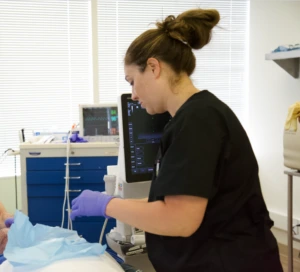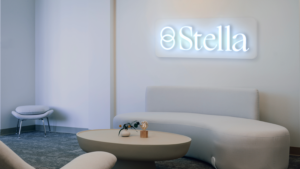





Are you experiencing anxiety, depression, or PTSD? We can help. Stella Center offers in-office medical treatments for mental health paired with virtual integration therapy to bring dramatic healing in the window of transformation following treatment. Get relief from symptoms like disrupted sleep, panic attacks, irritability, hypervigilance, difficulties concentrating, sexual dysfunction, and more. Our protocols include Transcranial magnetic stimulation (TMS) , ketamine infusions, the dual sympathetic reset – an advanced stellate ganglion block (SGB), and more.
We see mental health challenges as injuries rather than disorders. Our treatments aim to heal the injury, not just manage the symptoms. We partner with Neurostar on our TMS treatment protocols, and we ‘re the nation’s largest provider of SGB for mental health.
Stella Center’s board-certified providers and experts have treated over 8,000 people to date across 20 locations in the US. Our protocols are safe, effective, and powerful, allowing people to feel better faster and maintain long-lasting gains. Stella Center Chicago is led by Chief Medical Officer, Dr. Eugene Lipov and Medical Director of Ketamine, Dr. Bruce Nadro.





Transcranial magnetic stimulation (TMS) is an FDA-cleared treatment that is proven to reduce and relieve depressive symptoms safely. By clinician rating, 83% of patients responded to an acute TMS course and showed improvement of depression symptoms, and 62% achieved remission*. Call 908-293-7559 to talk to our care advocate team and get more info. (Source:https://neurostar.com/hcp/results/)
TMS by Stella is covered by insurance in the state of Illinois. Intake assessments, follow-up appointments and Integration Therapy may be eligible for insurance reimbursement through Superbills. Eligible insurances include: Blue Cross Blue Shield of Illinois (all plans), Optum, Evernorth, and Aetna. For more questions on insurance coverage, please call our care advocate team at 908-293-7559.
Frequently Asked Questions about TMS Therapy Does TMS work for depression? Transcranial magnetic stimulation (TMS) is an FDA-cleared treatment that is proven to reduce and relieve depressive symptoms safely. By clinician rating, 83% of patients responded to an acute TMS course and showed improvement of depression symptoms, and 62% achieved remission*. Call 908-293-7559 to talk to our care advocate team and get more info. (Source:https://neurostar.com/hcp/results/) Is TMS therapy covered by insurance? TMS is offered at our Chicago flagship clinic, and we are thrilled to announce that TMS is covered by insurance in the state of Illinois. Intake assessments, follow-up appointments and Integration Therapy may be eligible for insurance reimbursement through Superbills. Eligible insurances include: - Blue Cross Blue Shield of Illinois (all plans) - Optum - Evernorth - Aetna Fore more questions on insurance coverage, please call our care advocate team at 908-293-7559. How much is TMS out of pocket? Does TMS therapy hurt? While there may be some minor discomfort at the treatment site (where the device touches your head), it generally subsides within the first week or treatment. There is no sedation, or impact on your alertness. You can read, watch TV, or talk with your treatment coordinator during your session, and you can drive home immediately after treatment.
Each TMS session lasts about 20 minutes. Since TMS does not require anesthesia, patients can return to daily life, work, etc. immediately following a session.
The recommended treatment course for TMS is five days a week for 36 treatments continuously. However, our providers will work with you to accommodate your schedule without compromising the outcome of the treatment.
During a TMS treatment session, you will sit on a reclined and comfortable chair. You will be required to stay awake, and you can read, watch videos, or simply relax.
We don't recommend the use of cell phones during the TMS therapy. However, an iPad may be provided during treatment for entertainment or other purposes.
"*" indicates required fields